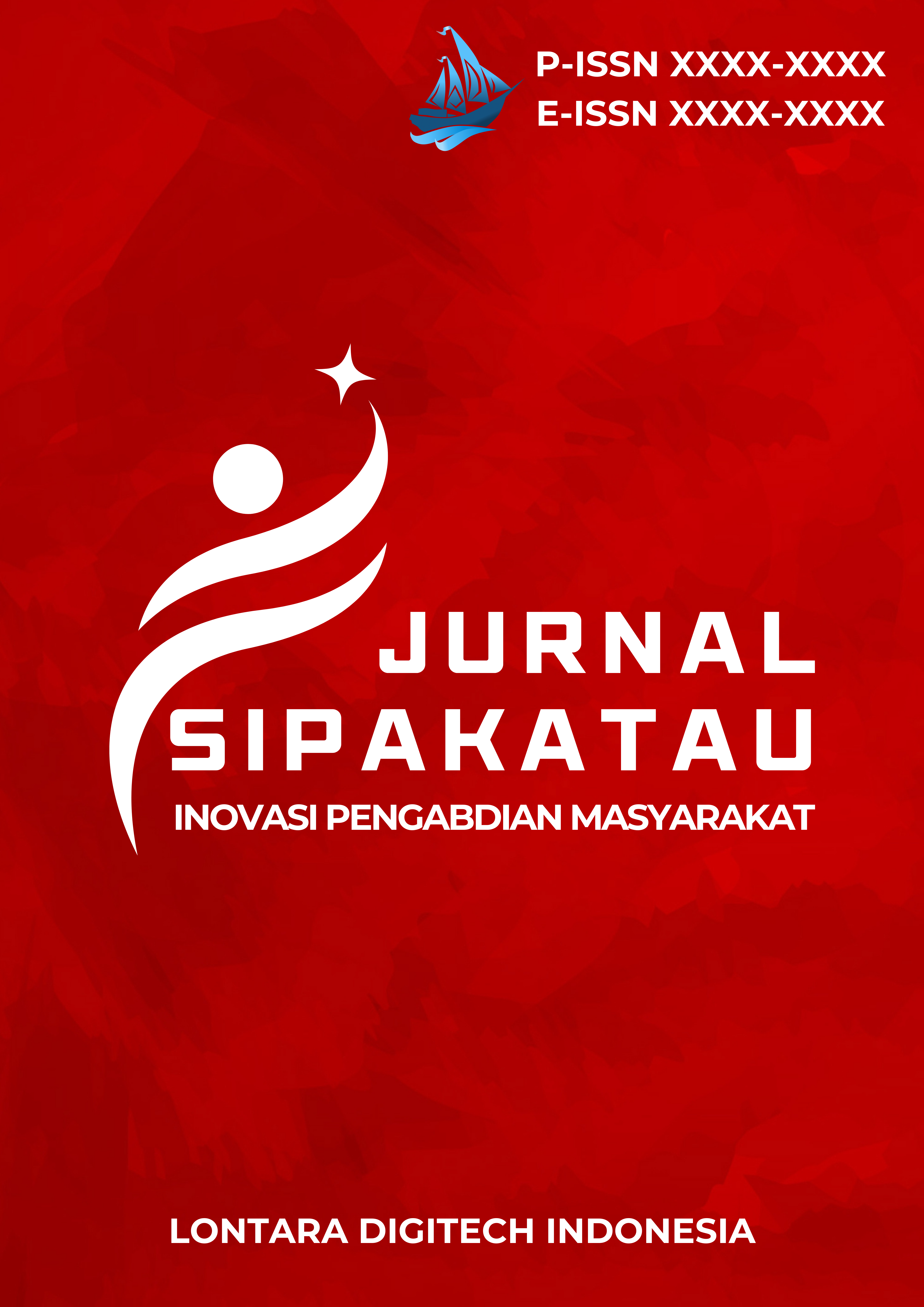Digital Literacy and Digital Ethics Strengthening Program For Generation Z in The Information Era for High School Students
DOI:
https://doi.org/10.61220/Keywords:
digital literacy, digital ethics, generation z, high school students , information eraAbstract
This community engagement program aims to enhance digital literacy and digital ethics among Generation Z, particularly high school students in grades XI and XII in Wonomulyo, in response to the complex challenges of the information era. As digital natives, Generation Z has broad access to technology but often lacks the critical and ethical skills necessary for responsible digital media use. This program was designed to provide a comprehensive understanding of how to use digital platforms wisely, safely, and ethically through participatory and experiential learning methods. The implementation included socialization sessions, interactive workshops, case simulations, group discussions, and student-led digital campaigns. The results showed a significant improvement in students’ conceptual understanding, critical thinking abilities, and ethical awareness in navigating digital content. Participants also displayed strong enthusiasm in formulating a digital code of ethics and raising collective awareness about the dangers of misinformation, cyberbullying, and negative digital footprints. With active support from school officials and facilitators, the program effectively fostered responsible digital citizenship. It is hoped that this initiative can be sustainably replicated within the school environment and further developed as part of a character education curriculum rooted in digital competence. Strengthening digital literacy and ethics is a crucial step in preparing young generations to face global challenges wisely and ethically.
References
Freire, P. (1970). Pedagogy of the Oppressed. Continuum.
Kominfo. (2022). Laporan Penggunaan Media Sosial Remaja Indonesia. Kementerian Komunikasi dan Informatika Republik Indonesia.
Lickona, T. (1992). Educating for Character: How Our Schools Can Teach Respect and Responsibility. Bantam Books.
Livingstone, S., Bulger, M., & Ciampaglia, G. (2021). Young People’s Digital Competencies and the Challenge of the Future. In Digital Natives and Digital Immigrants? (pp. 45–63). Oxford University Press.
Prensky, M. (2001). Digital Natives, Digital Immigrants. On the Horizon, 9(5), 1–6.
Ribble, M. (2011). Digital Citizenship in Schools: Nine Elements All Students Should Know. International Society for Technology in Education.
UNESCO. (2018). A Global Framework of Reference on Digital Literacy Skills for Indicator 4.4.2. UNESCO Institute for Statistics.
Winarni, E. (2020). Implementasi Pendidikan Karakter melalui Kode Etik Digital di Kalangan Pelajar. Indonesian Journal of Educational Research, 3(2), 112–126. https://doi.org/10.6087/kcse.265
Samsudin, S., Rasmin, L. O., Asbar, A., Isma, A., Ruing, F. H., Supriadin, S., Baharuddin, A. F., Adika, D., Fitriyah Fitriyah, Nuryanti, D., Ibrahim, M., Waruwu, Y., & Pratiwi, V. U. (2025). Teaching Reading: Strategies for Developing Literacy Skills (1st ed.). CV. Intelektual Manifes Media.
Sari, I. N., Saputra, N., Zulfikar, A., Wulan, A. P., Rahmi, A., Novita, D., Badruzaman, D., Mulyaningsih, I., Tarigan, N. P., Wicaksono, S. R., Sululing, S., Jafar, S., Agustina, T., Isnawati, U. M., Iskandar, A., & Febriana, W. (2023). Lika Liku Publikasi Ilmiah di Indonesia. https://doi.org/10.31219/osf.io/q6wk3
Sari, I. W., & Adibah, F. (2022). Pendampingan Publikasi Masyarakat Ilmiah Sebagai Solusi Praktis Melalui Webinar: Kupas Tuntas Rahasia Lolos JUPELAKNAS. As-Sidanah : Jurnal Pengabdian Masyarakat, 4(1), 87–103. https://doi.org/10.35316/assidanah.v4i1.87-103
Siripipatthanakul, S., Limna, P., & Phuangsuwan, P. (2024). The Relationship between Engagement, Motivation, Cognitive Process, Student Satisfaction, and Effectiveness of Distance Education among a Higher Education University’s Students. SSRN Electronic Journal. https://doi.org/10.2139/ssrn.4862579
Vygotsky, L. S. (1978). Mind in society: Development of higher psychological processes. Harvard University Press.
Wingate, U. (2012). Using Academic Literacies and genre-based models for academic writing instruction: A 'literacy’ journey. Journal of English for Academic Purposes, 11(1), 26–37. https://doi.org/10.1016/j.jeap.2011.11.006
Published
Issue
Section
License
Copyright (c) 2025 Masni, Asriati, 3Andika Wahyudi Gani, Muhtar, Irwansyah Suwahyu, Muhammad Asriadi (Author)

This work is licensed under a Creative Commons Attribution-ShareAlike 4.0 International License.
















 Email: sipakatau@lontaradigitech.com
Email: sipakatau@lontaradigitech.com
